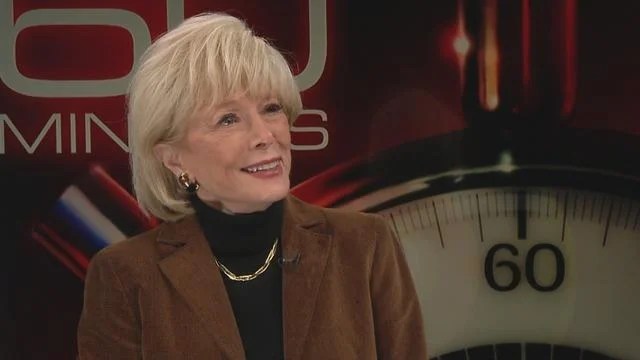The realm of investigative journalism has often been defined by the pursuit of truth, and few platforms embody this mission as effectively as CBS's 60 Minutes. For over five decades, 60 Minutes reporters have captivated audiences with their compelling storytelling and relentless quest for uncovering stories that matter. Each episode features in-depth interviews, investigative reports, and a unique perspective on current events, showcasing the dedication and professionalism of its reporters. The program has become a staple in American households, and its impact on journalism is undeniable.
In a world inundated with information, the role of 60 Minutes reporters becomes even more crucial. Their ability to sift through the noise and deliver fact-based, unbiased reporting has earned them accolades and a loyal viewership. Each reporter brings a diverse background and skill set to the table, allowing for a rich tapestry of storytelling that resonates with audiences. From political scandals to human interest stories, 60 Minutes reporters cover a broad spectrum of topics, ensuring that viewers remain informed and engaged.
As we explore the intricacies of the reporting process, the dedication of the journalists, and the impact of their work on society, it becomes clear that 60 Minutes is not just a television program; it is a pivotal institution in the landscape of journalism. The following sections will delve deeper into the lives and careers of these esteemed reporters, shedding light on their personal journeys and the stories that have defined their careers.
Who Are the Iconic 60 Minutes Reporters?
The roster of 60 Minutes reporters has evolved over the years, featuring legendary figures in journalism. Some of the most notable names include:
- Mike Wallace
- Diane Sawyer
- Morley Safer
- Lesley Stahl
- Scott Pelley
- Anderson Cooper
What Makes 60 Minutes Reporters Stand Out?
The hallmark of 60 Minutes reporters is their commitment to thorough research and a strong ethical foundation. They are known for their meticulous fact-checking, ensuring that every story they present is grounded in truth. Their ability to connect with interview subjects and foster trust is essential in uncovering genuine narratives that resonate with the audience. Additionally, their diverse backgrounds allow for varied perspectives, enriching the storytelling process.
What Types of Stories Do 60 Minutes Reporters Cover?
The topics tackled by 60 Minutes reporters span a wide array, including:
- Political investigations
- Social justice issues
- Environmental challenges
- Technological advancements
- Health and wellness
- Human interest stories
What Is the Impact of 60 Minutes Reporters on Society?
The impact of 60 Minutes reporters extends beyond television screens. Their investigative journalism has led to significant societal changes, shining a light on corruption, injustice, and pressing social issues. Many of their stories have prompted public discourse, influenced policy change, and inspired grassroots movements. By providing a platform for underrepresented voices and issues, they have become catalysts for change.
How Do 60 Minutes Reporters Prepare for Their Stories?
The preparation process for 60 Minutes reporters is extensive and rigorous. It typically involves:
- Identifying potential stories through research and networking.
- Conducting background interviews and gathering data.
- Engaging with experts to gain insights.
- Building rapport with interview subjects to elicit genuine responses.
- Fact-checking every piece of information before airing the story.
What Are Some Notable Stories Covered by 60 Minutes Reporters?
Over the years, 60 Minutes reporters have produced countless impactful stories. Some notable examples include:
- The Watergate scandal investigations
- Investigations into the tobacco industry
- Reports on the opioid crisis
- Interviews with world leaders
- Human interest pieces highlighting the resilience of individuals
What Is the Future of 60 Minutes Reporters?
As the media landscape continues to evolve, the future of 60 Minutes reporters is promising yet challenging. With the rise of digital media and changes in audience consumption habits, these journalists must adapt while maintaining their core values. Embracing new technologies and platforms will be essential for reaching younger audiences and ensuring that the tradition of investigative journalism remains relevant.
Can We Expect New Faces Among 60 Minutes Reporters?
The legacy of 60 Minutes reporters is built on the shoulders of both established figures and emerging talents. As veteran journalists retire, there is a growing interest in mentoring the next generation of reporters. New faces are being introduced, bringing fresh perspectives and innovative approaches to storytelling, thereby ensuring the program's continuity and relevance in the coming years.
What Personal Details and Biographical Information Do 60 Minutes Reporters Have?
Here is a brief overview of some iconic 60 Minutes reporters:
| Name | Age | Years Active | Notable Stories |
|---|---|---|---|
| Lesley Stahl | 82 | 1971-Present | Interviews with world leaders, investigative pieces on healthcare |
| Anderson Cooper | 56 | 2003-Present | Reports on Hurricane Katrina, the 2010 Haiti earthquake |
| Scott Pelley | 65 | 2003-Present | Investigative reports on the Iraq War, economic issues |
In conclusion, the world of 60 Minutes reporters is a fascinating blend of dedication, skill, and impact. They continue to set the standard for excellence in journalism, inspiring future generations to uphold the values of truth and integrity. As we look ahead, we can only anticipate the compelling stories and revelations that will emerge from their tireless efforts to inform and engage the public.
Mark Levin's Journey To Health And Wellness
Love In The Spotlight: The Journey Of Donald Trump Jr. And Kimberly Guilfoyle
Behind The Facade: Trump Without Makeup


